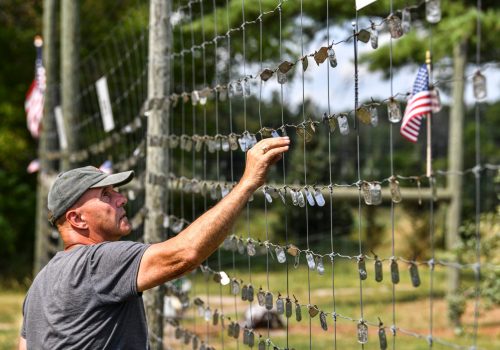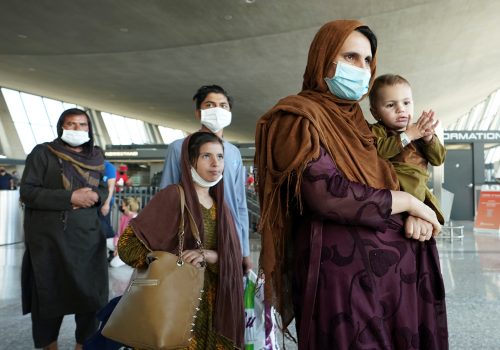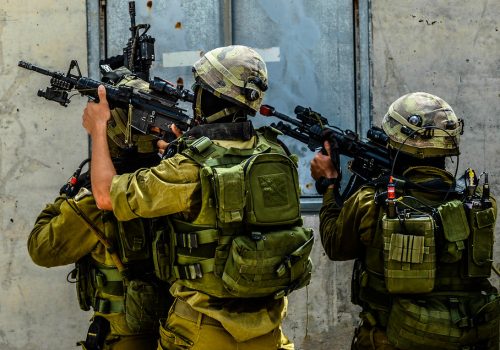We have heroes, not avengers: A generation shaped by 9/11
I sat in the cafeteria with the other second graders. It was a normal, sunny September day. Suddenly, a frantic teacher’s aide burst in and called my name. “That’s me,” I squeaked. “You need to leave now,” she said, grabbing my arm. “Your parents are pulling you out of school for the day.”
At home, I wasn’t allowed to watch what was happening on TV, though I could make out billowing smoke on the screen before someone turned it off. As I sat in bed that night, my mom told me the news: Two planes had flown into the Twin Towers.
“Is everyone okay?” I asked. Her eyes began watering. “No,” she responded. “Uncle Michael is missing.”
Michael Francis Lynch was thirty years old when he died in the South Tower on 9/11. My mom’s younger brother, he was a firefighter in the Bronx but was on rotation for training in Manhattan when he responded to the call. He was engaged to his high school sweetheart; they would’ve been married on November 14, 2001—his parents’ wedding anniversary.
The next few months were a blur of bagpipes and funeral attire as a steady stream of condolences—toys, food, neighbors’ hugs—arrived at our house every day. We had two services three months apart: a memorial before Michael’s body was recovered and a funeral after. In the time between, we made buttons and T-shirts and hoped for as long as we could that he might still return. My grandfather dug at Ground Zero every day for six months until they found Michael. His Celtic cross tattoo was still intact—a miracle, the medical examiners said. He was found covering a woman as the South Tower collapsed on them.
Across the country, people stopped boarding airplanes and started joining the military. At home, I watched my devastated family pick up the pieces, my seven-year-old self unable to grasp the weight of the moment.
Even after Michael was found, my grandfather continued to dig in search of other fathers’ sons. The family created the Michael Lynch Memorial Foundation, which raised money to send the children of first responders to college. They expressed to me the importance of doing something good when something so bad had happened and how we must honor the best parts of those who have left us. We met so many who nearly avoided tragedy that day, whether they’d overslept, made a wrong turn, or were otherwise spared by a mundane stroke of luck. We also met people who had escaped or were rescued.
I wondered how my parents, grandparents, aunts, and uncles could sit through those stories, knowing Michael was never supposed to be there. But each time, they hugged the survivors with genuine relief that they or their loved ones had made it out alive.
Since 2001, every September has loomed over me. Our personal tragedy was also a national one, and on that day every year the United States grieved alongside us. It wasn’t until I was older that I realized how unusual this was. But in many ways, my grief over losing my uncle reflects a broader sentiment among the generation that grew up in the wake of 9/11.
I imagine many other Millennials and Gen-Z’ers feel as I do: defined, in one way or another, by the events of 9/11 but without a personal connection to the nation that existed before it. As we came of age during long, costly, and unwinnable wars, it became clear that anger and fear had led the country down a dangerous path that has claimed thousands of lives. Burdened with a sort of adjacent grief, we live in the liminal space between absorbing the enormity of a large-scale tragedy and firmly distancing ourselves from it.
From what I’ve seen, this fundamentally altered our psychology. We view global events and challenges with a sense of personal responsibility. Far from simply recounting the memories of that day, the children of 2001 are now able to articulate the experience of growing up in the post-9/11 United States. We are frustrated about the course of American history and policy over the last twenty years—but that frustration has manifested itself in activism. Although frequently dismayed by the state of the world, we are not disgruntled: We seek justice in an unfair world; we wear masks to protect strangers in a global pandemic; we care for our planet.
Most of all, we accept that the sins of our forebears are not isolated in the past; rather, we are responsible for atoning and making amends, while building a better future with humility, not hubris.
On the twentieth anniversary of 9/11, there is a sense of deep despair among those who clearly remember that terrible event. Two decades of war in Afghanistan ended with a demoralizing conclusion that casts a dark shadow over what is already a somber day. For many, this could be the most painful anniversary.
Yet I am not hopeless. I believe the lessons my generation learned from 9/11 portend a much brighter future. Rather than running from our greatest challenges, we collectively confront them. Climate change, human rights, racism, a pandemic—solutions to these tremendous problems require structural changes. But across the world, they are met with individual commitments and sacrifices every day. We have heroes, not avengers.
On my worst days, I remember that I once knew a person who ran into a burning building to save his fellow humans. I’d like to think he inspired a generation to do the same.
Caroline Multerer is the chief of staff for the Atlantic Council’s Scowcroft Center for Strategy and Security. Her uncle, Firefighter Michael Francis Lynch, died in the attacks on the World Trade Center on September 11, 2001. He was the younger brother of her mother, Kathleen. Michael, Kathleen, and their eight other siblings were born and raised in the Throgs Neck neighborhood of New York City.
Further reading
Image: Students at Bob Jones University in Greenville, South Carolina, set up flags for a 9/11 memorial on September 7, 2021. Photo by Josh Morgan/USA Today via Imagn Content Services, LLC


